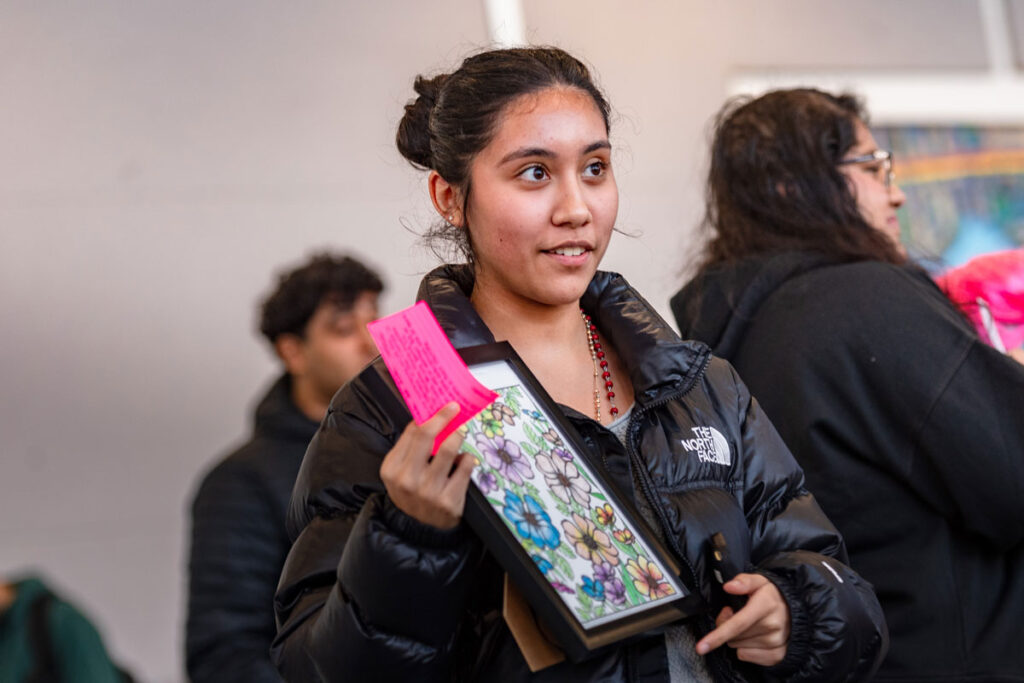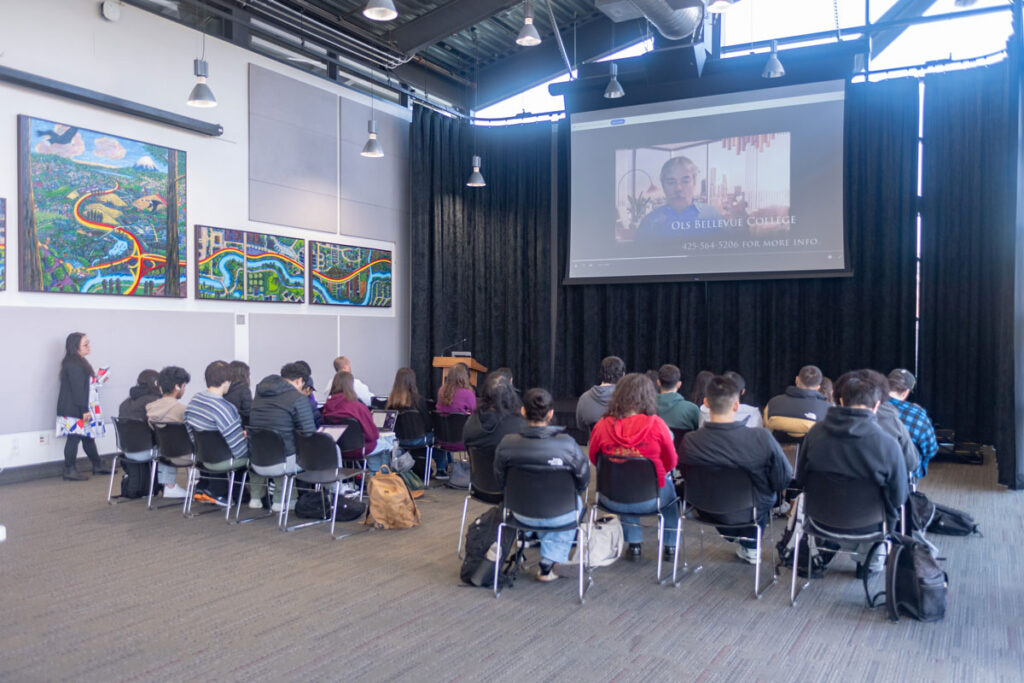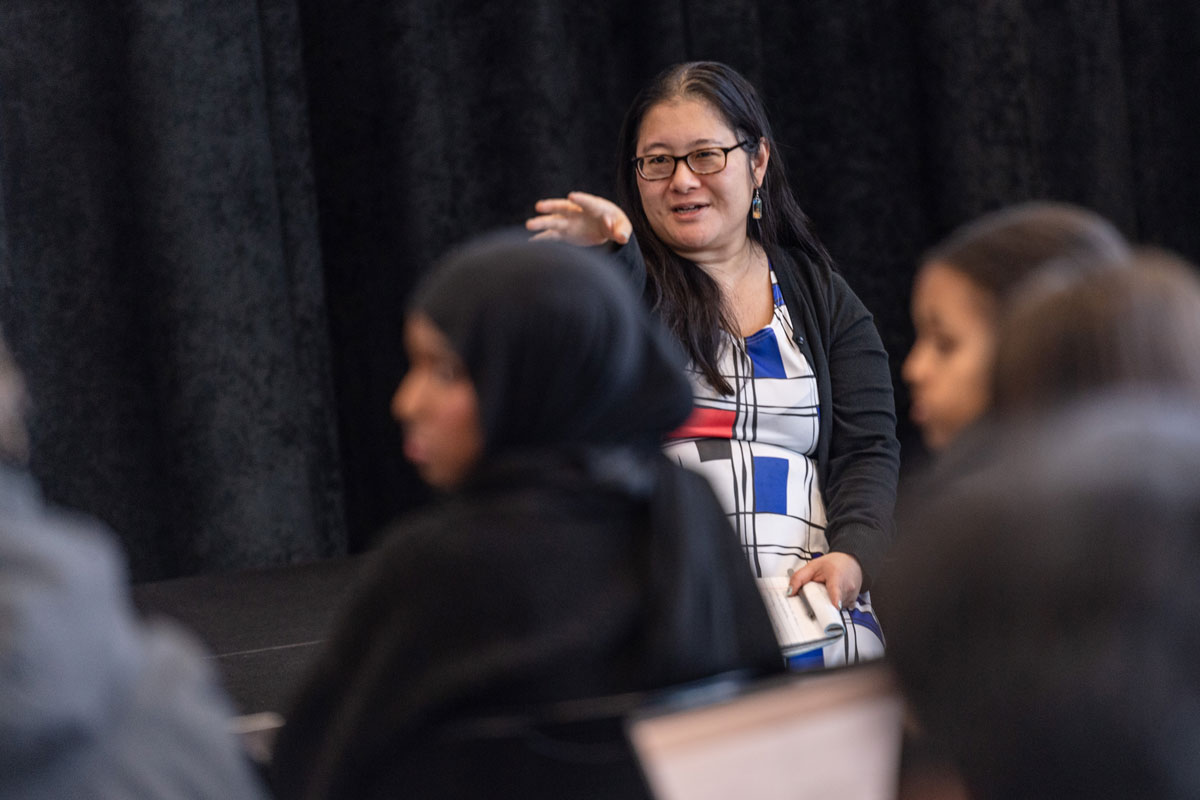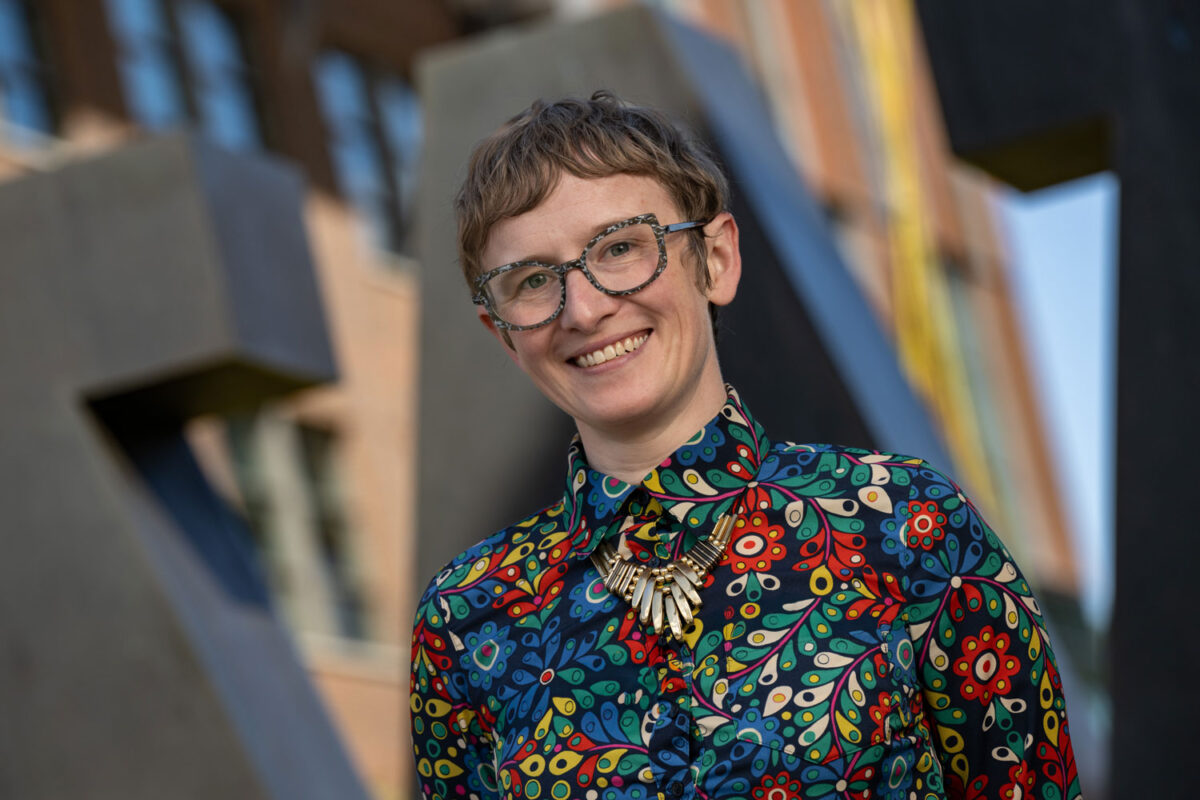Mental illness is one of the leading public health problems in the United States, with more than one in five adults estimated to be afflicted by a mental health disorder, according to the National Institute of Mental Health. The impacts of this epidemic are widespread.
Addressing this problem doesn’t just benefit the health and well-being of the individuals affected by it, Laura Umetsu notes. It’s also good for business.
“Mental health affects us all,” said Umetsu, “And from a business perspective, it’s a really smart investment because we are facing an epidemic of mental health problems and issues in the workplace.”
According to the National Alliance on Mental Illness, mental illness causes $193.2 billion in lost earnings each year in the U.S. — with workplace impacts including loss of productivity, absenteeism and employee retention.
As an attorney and a lecturer in the University of Washington Bothell’s School of Business, Umetsu takes these issues to heart. She aims to raise awareness and empower her students to create change by incorporating mental health topics across her curriculum.
The need for early intervention
Umetsu has long held an interest in the intersection of business and mental health. She’s volunteered on and off with NAMI since 2005 and serves as their on campus faculty adviser. When a few of her business school peers nearly died by suicide following the 2008 recession, she felt passionately that more could be done to break down stigmas around mental health and to create workplace cultures that value employee well-being.
When the COVID-19 pandemic began to further exacerbate the mental health crisis, Umetsu again felt called to action.
“After encountering students who were in active suicidal ideation in response to the pandemic and the aftermath, I wondered how we could better support them and set them up for success long term,” she said. “Early intervention and treatment is key to a less expensive and less painful recovery.”
Umetsu noted that the median time it takes from someone exhibiting early signs and symptoms to getting professional help is 10 years. “Can you imagine breaking your leg and not treating it for 10 years? We don’t treat any other kind of health disorder like we treat mental health.”
During autumn quarter 2024, Umetsu hosted two “mental health first aid” training sessions on campus through her relationship with NAMI Seattle and funding through King County’s MIDD tax.
“One of the things we emphasize in mental health first aid is that it’s most effective at the early signs and symptom stage. We teach participants to identify early symptoms of mental health or substance-use challenge,” she said. “This not only reaches more students but also alleviates pressure from the campus counseling center when a friend can intervene early, encourage someone to seek help and prevent them from being in crisis mode a year later and requiring more resources.”

The value of peer support
Training students to identify and help peers who are facing mental health challenges can make a significant difference in how soon they get help, Umetsu said, as young people are more likely to talk to a friend than a college professor or mental health staff if they’re struggling.
“Many haven’t had access to peers who are trained in mental health, particularly those from backgrounds that are historically marginalized by mental health care,” she said. “If we can train our students as human beings, as individuals and as future managers to identify signs and symptoms of mental health challenges early on and intervene, that sets up them and their employees and peers for success.”
As students are more likely to lean on one another for help, Umetsu added, peer support can be especially valuable for those from low-income backgrounds who may lack access to mental health resources, as well as those from cultural backgrounds that may stigmatize mental illness.
“I come from a Latinx community where mental health is not talked about or acknowledged, so it can be difficult for individuals in the community to open up about mental health issues that they struggle with,” said Wendy Barajas-Avalos, a senior majoring in Business Administration. “The training helped me gain more knowledge on mental health and how to possibly help someone struggling with a mental health challenge.
“It also helped me gain some confidence in being able to approach a coworker in the future if I were to see them struggle.”


The impact of mental health training
The mental health first aid training was made available to students from Umetsu’s classes as well as others on campus interested in getting certified. Members of the Campus Safety team were among the participants, and Umetsu found it particularly rewarding when she witnessed one of officers using skills from the training.
“I saw a member of the security team interacting with somebody who was clearly in crisis, and I saw the guard, who was someone I’d trained, using the de-escalation skills I taught him,” she said. “I was so happy to see it in action and being used.”
Pre-major junior Atharva Barad first heard about the training when Umetsu lectured at United Indians of All Tribes Labateyah Youth Home, where he currently works. The home provides support for homeless youth and crisis housing for those in need.
“I’m in a generation surrounded by people facing mental health problems at school, work and even my house. It made sense for me to take the course to be prepared to handle a mental health situation, whether it’s one of my peers or whether it’s me,” Barad said. “In my culture, there’s a lot of stigma surrounding mental health. These barriers often hinder how we deal with our mental health or even express our emotions. Luckily, going through this course shed some new light on certain myths or information I didn’t know previously.”
One of these myths, he said, was the idea that even just talking about suicide with a person in crisis will make them more likely to die by suicide. Rather, he learned, it can be an important step in getting them the help they need.
The training has already paid off in a number of ways, Umetsu said, such as raising awareness about mental health issues and the resources that are available. But most importantly, it’s saved lives. “A couple students have already approached me to tell me, ‘Today, I saved a life using the skills you gave me. I had a friend who was in active suicidal ideation, and I convinced them not to do it, that they’re not alone and to get help.’”
“A couple students have already approached me to tell me, ‘Today, I saved a life using the skills you gave me. I had a friend who was in active suicidal ideation, and I convinced them not to do it.'”
Dr. Laura Umetsu, lecturer, School of Business
Bolstering mental health education
While this was the first time she offered training for mental health first aid to a class, Umetsu has been incorporating mental health themes throughout her courses. In her business law class, for example, students have had opportunities to attend live court proceedings about mental health issues and to research case studies on workplace mental health and disability accommodations.
In another class, students learned from guest speaker and local artist Judge Anthony Gipe, who presides over many cases involving mental health and/or substance use disorders, about the benefits of art therapy and created their own artwork, which was exhibited in a showcase that included therapy dogs and a documentary screening on mental health.
Umetsu said she plans to offer the training to more of her students in the future. She also wants to expand her outreach so more people across the campus community and beyond can benefit. Currently, she is working with UW Bothell’s School of Educational Studies on mental health first aid that is specifically targeted to supporting children and adolescents for public school educators from around the King County region.


Mental health resources:
- UW Bothell Counseling Center.
- NAMI Seattle and NAMI Eastside.




